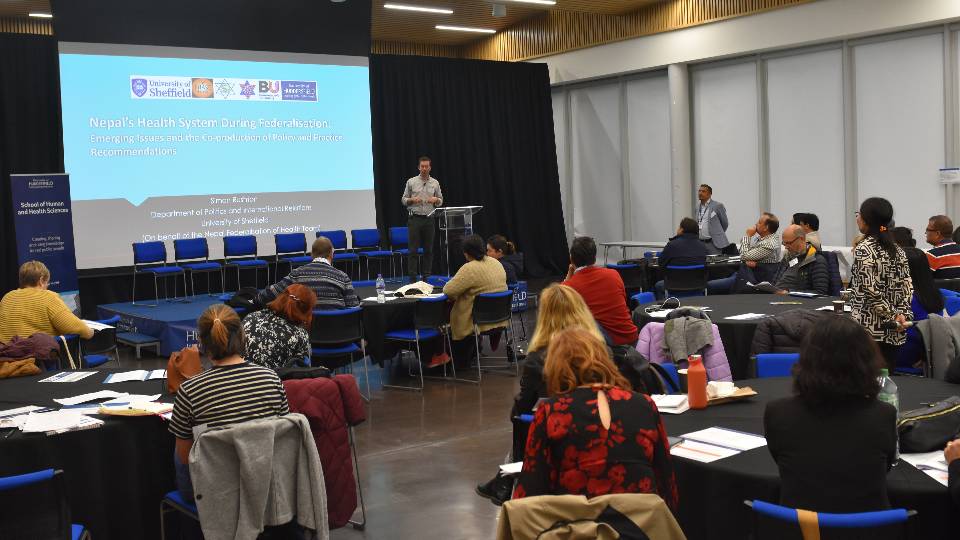The University of Huddersfield has played host to a prestigious two-day interdisciplinary conference that will strengthen links between Britain and Nepal as well as lead to positive change in Nepal itself.
The British Nepal Academic Council (BNAC) 20th Nepal Study Days event saw around 70 delegates attend in person, with another 25 joining the programme of presentations and discussions online.
The multi-disciplinary event included over 50 presentations that covered a range of topics including health, education, gender, cultural studies, ageing, disaster preparedness, social development and migration. It also celebrated the work of Professor Michael J. Hutt, Professor of Nepali and Himalayan Studies.
"This was a wonderful opportunity for the University of Huddersfield, and a real privilege that ours was the first 'post-92' university to host BNAC," said Professor Padam Simkhada, Associate Dean (International) of the School of Human and Health Sciences.
"The event was an opportunity for researchers and academics researching in Nepal to share their findings and policy implications directly with the representatives from the Nepal Health Research Council (NHRC), the Government of Nepal institution responsible for providing ethical approval to research in Nepal and policy direction for the regulation, promotion, management and utilisation of health research in Nepal," he adds.
Nepalese government to act on BNAC discussions
Keynote speakers included the Chairperson of NHRC, Professor Gehnath Baral and Member Secretary Dr Pradip Gyanwali, who led the round table discussion with academics and PhD researchers at the University of Huddersfield to discuss the current issues and challenges in healthcare research in Nepal.
"I am delighted to be in this conference and there are several presentations which are very much policy relevant," said Dr Gyanwali. "The Nepal Government will incorporate these recommendations in policy and practice. We also look to collaborate with Professor Padam and his team for the development of an Evidence Synthesis Centre in Nepal."
Other keynote speakers included Dr Susan Acharya from Tribhuvan University Nepal, Professor Tejendra Pherali, University College London, and Professor Simon Rushton from the University of Sheffield.
Professor Rushton presented initial findings from the MRC-funded project on impact of Federalisation on Nepalese Health Systems, and highlighted the emerging issues and co-production of policy and practice recommendations in Nepal's Health System during federalisation.

Similarly, Professor Pherali discussed the politics of higher education in Nepal and Dr Acharya talked about health literacy and intergenerational learning during the COVID-19 Pandemic, as health and education are the two key pillars that plays an important role to the development of the Nepalese society. The two round-table discussions in the conference discussed the current challenges and opportunities in healthcare research and higher education in Nepal.
The Chair of the BNAC, Dr Sara Parker, Reader in Development Studies at Liverpool John Moores University, said, "I was delighted to see the diversity and broad range of the research areas covered in the presentations. It highlights that the BNAC conference sets an example of the relevance and importance of multidisciplinary conferences."
As an organising committee member, Dr Rajeeb Sah, Senior Lecturer in Public Health, highlighted the strength of Nepalese health research within the School of Human and Health Sciences.
"Our academics and PhD researchers from HHS have showcased and led the discussions around maternal health and health systems research in Nepal, and the representatives from the NHRC have responded positively for a change based on the evidence and recommendations from this research."






